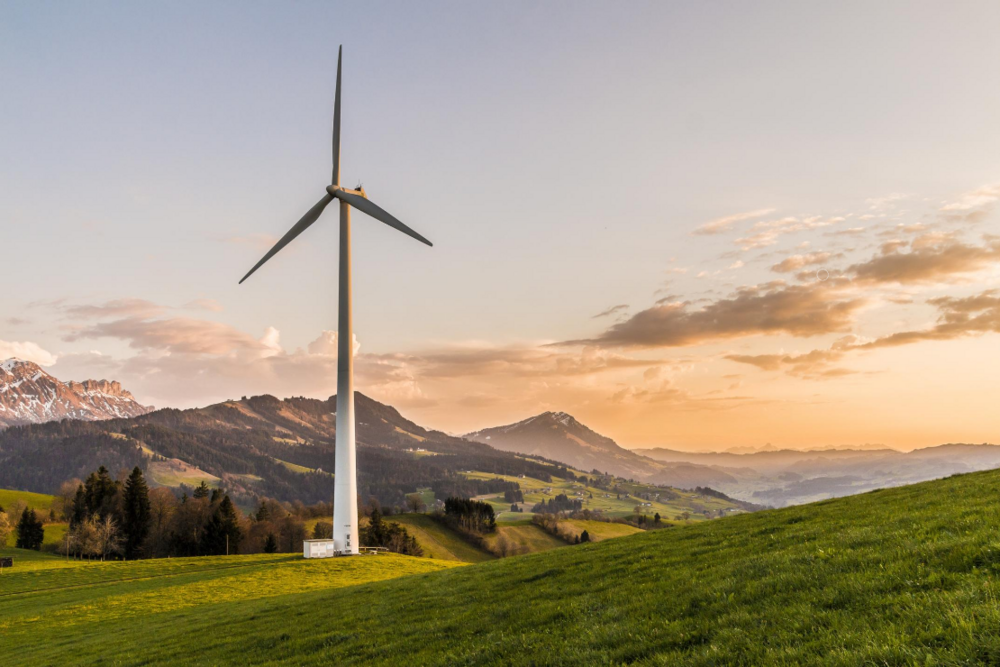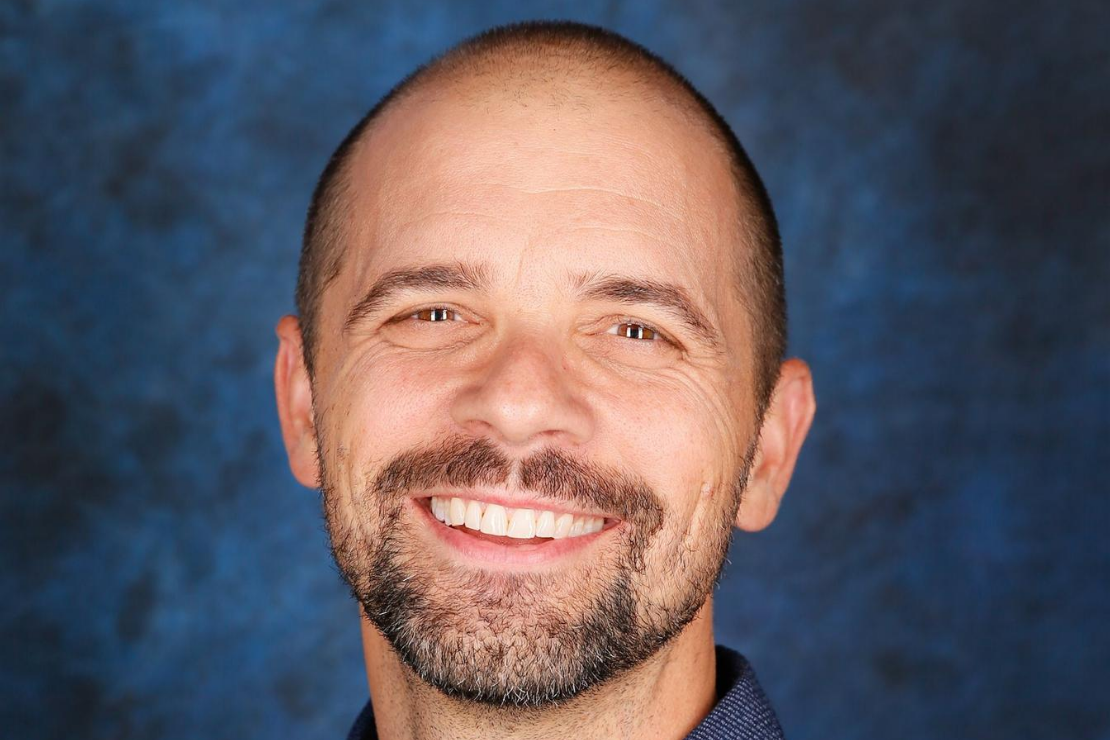#ClimateTech: How Climate Change is Creating the Next Big Disruptive Technology Cycle
Sep 23, 2020

By Cody Simms, Partner and Senior Vice President at Techstars
Today, our world is at the tipping point so many scientists have warned about. Climate change is no longer some far off issue, but one which is acutely felt on a political, social, economic, and planetary level. And what’s even more troubling is that it is not going away anytime soon. According to the Intergovernmental Panel on Climate Change (IPCC), limiting global warming to 2.7°F (1.5°C) requires cutting global carbon-based emissions in half by 2030. This is a stark assessment, giving us 10 years to drastically change how we live and how many of the world’s major industries do business in order to have any hope of avoiding calamity. Just 10 years.
Everything Will Change As We Move Toward Sustainability
In my role at Techstars, I drive our global efforts around climate change and sustainability. In my work facilitating engagements across wide-ranging groups — through event series, startup pitch events, roundtable discussions, and trend reports — it is clear that awareness of the urgency of climate change is growing. This awareness needs to grow significantly faster, but it’s growing.
Over the next decade, we will see another wave of business disruption that I believe will be even larger than what we saw in the 2000s/2010s with the rise of mobile and cloud. There are a few reasons for this:
01. Rapidly dropping cost of energy
As the energy grid shifts toward renewables, the economics change. Once deployed, renewables require very low cost to operate and thus the cost of energy will continue to drop precipitously which creates enormous opportunity. As Matt Eggers of Breakthrough Energy Ventures recently tweeted: “What crazy stuff will you do when you have power for $0.01/kWh?” If you consider what the tech world was able to do as the cost of computing power decreased due to Moore’s Law, I am deeply inspired by what we can all do with low-cost energy around the world. Frankly, this boggles my mind with possibilities.
Learn about how The Nature Conservancy is using innovation to fight climate change by partnering with startups like 2NDNATURE.
02. Push to carbon neutrality or net-zero
Whether via regulation, as is largely the case in Europe, or via voluntary corporate activism as is largely the case in the United States — as led by companies like Google, Microsoft, and Amazon — the coming decade will see a continued push for industries to move to carbon neutrality or net-zero carbon. As companies begin to extrapolate the implications of this, we are already seeing them need to create more transparent supply chains and more sustainable manufacturing practices. This will have the added effect of quickly pushing the financial imperatives of sustainability out across the full business landscape. An increase in regulatory changes regarding climate change will likely further expedite this phenomenon.
Want to join us in fighting climate change? Check out the Techstars Sustainability Challenge! We’re bringing together founders, nonprofits, and universities with industry leaders, and we’ll choose the most promising ideas and partner the very best with top companies to build out real-world solutions.
03. The immensity of the problem
The sheer scope of the climate problem affects a significant portion of the overall economy. The energy sector is undergoing radical change today as we move to renewables and decentralization. Transportation is similarly transitioning to electrification and fleet-based business models. Wholesale changes in those industries are mid-flight. So too are sustainability-led transformations in food and agriculture, manufacturing and industry, construction and commercial real estate. It goes even beyond this. Just look at how rapidly the financial sector is adopting ESG and other risk-oriented models. And how quickly insurers are starting to consider the implications of climate risk — including risks of sea level rise, wildfires, and floods — on policies they underwrite. This is already happening and will come to a head during this decade.
04. Economics of sustainability are shifting
The days of sustainability as purely a corporate social responsibility concern are starting to wane; you only have to look at disruptors like Tesla or Beyond Meat to see that in addition to the moral imperative of addressing the problem, the unit economics of sustainability and renewables are clearly starting to work. Beyond that, many companies are beginning to realize that if they don’t begin to invest in sustainable innovation today, the future clean-up costs they will face will be higher by orders of magnitude.
Read about how Norwegian energy giant Equinor is innovating with startup Fieldmade to reduce C02 emissions and save money.
Startups Fast Track Sustainable Innovation
Just as corporations often look to startups to speed up their innovation, they are also turning to startups to fast track their paths to sustainability. With the climate clock ticking, many corporate leaders concede that with the rapid and wholesale transformation needed right now, it is or is about to become an all-hand-on-deck effort, and finding innovation from the outside is critical. This is because startups — agile teams on the bleeding edge of tech developments and new frontiers — can grant corporations the nimbleness and experimentation required to meet this moment. Corporate leaders are finding that working with startups offers the best chance to test new concepts quickly and with lower risk.
This is something we see in our sustainability accelerators. Techstars has so far launched six partner-backed accelerators for entrepreneurs, innovators, and people passionate about new energy solutions, new agriculture solutions, and sustainability overall. These programs offer corporations the opportunity to develop deep business relationships with startups, whose products test ideas and create prototypes, without the brand risk or technology risk of doing it under their own roof. The collaborative results, meanwhile, offer hope for a greener tomorrow.
For example, supporting the planet’s transition to methods of more sustainable food production is in the crosshairs of the Techstars Farm to Fork Accelerator in partnership with Cargill and Ecolab. In 2018, the program’s first cohort of nine startups represented an incredible breadth of concepts: from digital solutions for farms to upcycled food products. More than 100 mentors and 40 venture capital firms met with the companies during 13 weeks of Techstars Farm to Fork. Our corporate partners Cargill and Ecolab provided invaluable access to subject matter experts and industry executives. Their engagement led to Proofs Of Concept (POCs), investment, and later discussion with seven of the companies that went through the program. This is just one accelerator in one sector, yet it shows the ingenuity startups constantly bring to big problems — and that they offer corporations seeking to increase their efficiency and boost sustainability.
A Path for Navigating the Disruption Ahead
Techstars recognizes the pressing nature of the climate crisis and the opportunity that such disruption creates — and we are working hard to be part of the solution. We are network enablers who create connectivity across actors throughout the world of innovation and sustainability. Of our ~2500 portfolio companies, we have around 200 with a sustainability focus; we’re actively working to increase that number. We seek to support innovation for the greater good.
The physical world is changing in front of our eyes. We’re here to help businesses large and small — from the earliest of startups to our largest partners — have some foresight into how industries will change and to gain those insights with enough time to react for the positive. I believe that navigating climate change will be the largest challenge and largest financial swing of the 21st century. Companies who navigate the transition well will be uniquely positioned for the future while also making a critical difference to our planet’s future; those who navigate the transition poorly may find their businesses reflecting back on their early 21st century glory days with sentimentality rather than thriving in decades ahead.
For further insights from Techstars on sustainability, check out our Techstars Sustainability Industry Trend Report.
About the Author

Cody Simms
Cody Simms resides in Los Angeles and is Senior Vice President of Climate & Sustainability at Techstars. Previously, Cody held roles including Chief Product Officer at StumbleUpon, Vice President of Product Management at Yahoo, and Product Manager at The New York Times, Sprint, and NBC Internet. Cody recently cofounded Climate Changemakers, a nonpartisan community action network. Cody holds an M.A. in Transnational Communication and Global Media from Goldsmiths College, University of London.
